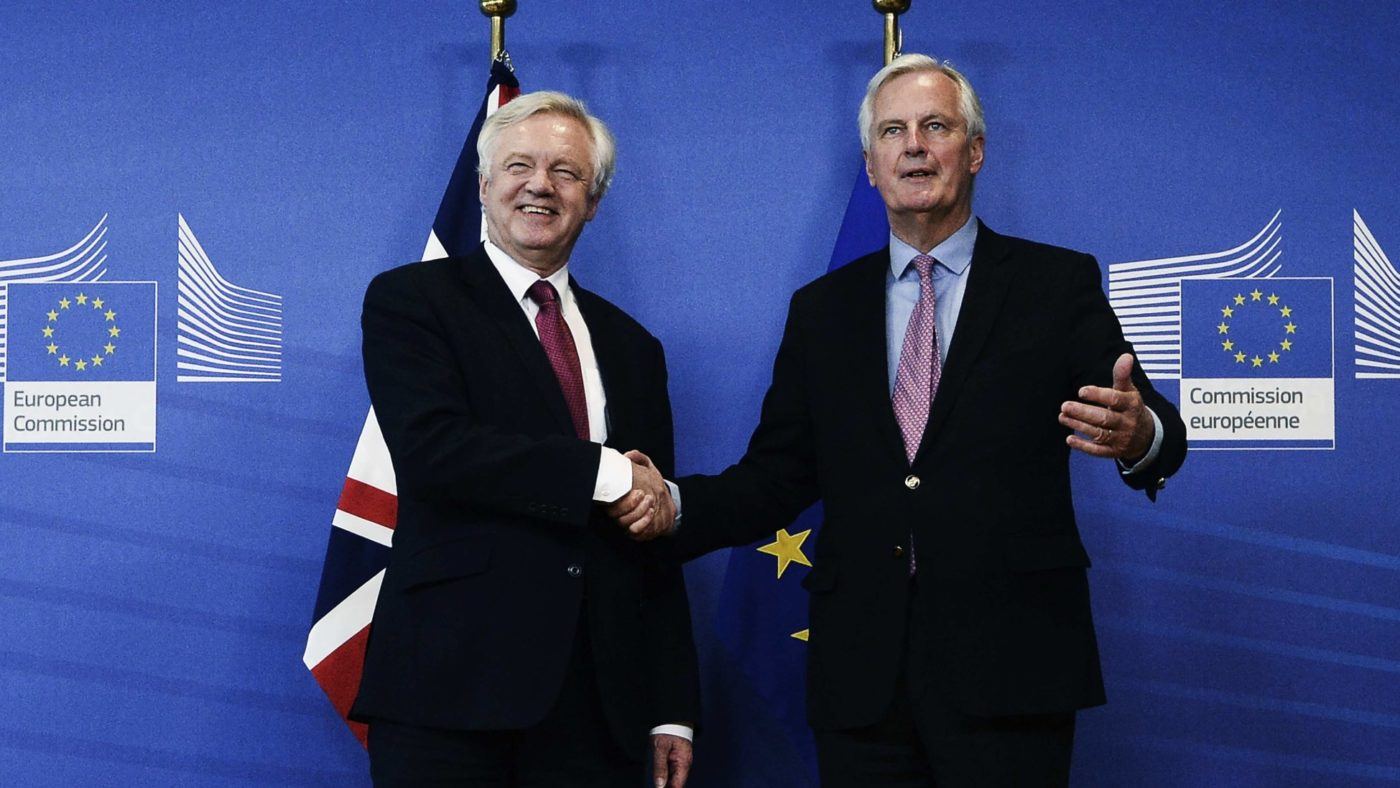Today the Brexit negotiations start. In terms of our dealings with the EU27, pretty much everything had been going according to plan.
Admittedly, our tactics could have been better. On 24th June 2016, for example, we should have immediately and unilaterally guaranteed EU citizens the right to remain and work here. The PM should have given early speeches saying how wonderful the EU was and how we expected it would flourish without us and that we looked forward to working closely with it in the future. And we should have said we would immediately be negotiating post-Brexit trade deals with the US and others.
So, the tactics have been poor. But May’s basic plan, the outline of which was clear by last Autumn and set out in detail in her Lancaster House speech, is the right one — indeed the only sensible one, if we were going to leave while controlling immigration. Control of our own laws (including those concerning immigration), a new free-trade agreement, some special arrangements to deal with the Irish border, and bridging arrangements to deal with the transition period — the four key features of her plan — are really the only option.
It appears to be fashionable to criticise May’s proposed form of Brexit, but I am yet to see any alternative that would allow immigration control and be plausibly acceptable to the EU27.
The economic situation has been solid up to now, with growth steady since the referendum and inflation back up into its target range. Even sterling was picking up a little, before the General Election.
The EU has been showing the expected pragmatism on issues such as financial regulation — even including euro clearing, which I had thought might be restricted to the eurozone, even if we had remained in the EU. The EU has also started making very promising noises about embracing the opportunity Brexit represents to purge itself of the non-euro EU and instead establish a coherent governance system with a centralised treasury and ongoing fiscal transfers.
We screwed up by turning down Trump’s offer of a trade deal this year, so now we probably won’t get one until around 2022 and it won’t be as good as the one we would have got this year. But c’est la vie. We’ll get there with the US in the not too distant future. Meanwhile friends such as Australia and Canada have committed to doing immediate new deals as soon as we leave the EU.
Thus, everything had been proceeding swimmingly. Even calling the election appeared to offer further opportunities for improving the Brexit process, by allowing us to continue to contribute to the EU budget until 2020 and perhaps retain Free Movement and ECJ jurisdiction until 2021 while still ending contributions, ECJ jurisdiction and Free Movement before the next election.
Then it all went horribly wrong.
Now I fear there can’t be any Brexit deal without another general election, and since another general election is off the cards if the Marxist-socialists are in danger of taking over, that might well mean there can’t be a Brexit deal at all.
Maybe I’m too pessimistic and it will all work out okay. The government does have a majority, and the DUP is quite clear that it supports May’s Brexit plan — indeed, it regards any watering down of that plan as an unacceptable attempt to wriggle out of truly Brexit-ing at all. There aren’t many Conservative rebels and, if they are sufficiently cowed by the threat of a Corbyn government, perhaps the Government can hold the line and get through the Brexit negotiations all the way to 2022.
But I fear the worst. The EU would happily do a deal with either May or Corbyn. However, if it believes May might be replaced by Corbyn any time, a deal becomes near-impossible. Suppose that the EU agreed a deal with May that it then needed to spend some months ratifying through its internal processes. A deal that May and the DUP would find acceptable would include agreements not to subsidise domestic firms, via state aid, over imported products and to guarantee the free flow of finance capital.
But suppose May’s government fell while the EU was trying to ratify the deal. Then Corbyn would come along and say: “Let’s do a deal. It must include each side being able to subsidise domestic firms, via state aid, and being allowed to restrict the free flow of finance capital.” What May and Corbyn would want is so diametrically opposed that the EU will find it near-impossible to agree to a deal until it can be sure the UK is capable of sticking to it.
Another way to go might be to try replacing May with someone else (Boris, presumably?) in a year or so’s time, then trying for another general election in the autumn of 2018 if the Conservatives are ahead in the polls, then trying to close the deal between the Autumn and the Spring.
If the Conservatives are not sufficiently ahead in the polls at that stage, perhaps we could extend the deadline for leaving the EU until the end of 2020. The EU27 might well agree to that because that is the end of the current financial framework and thus an easy way to get around at least some of the financial issues created for the EU by Brexit.
It’s all very tricky. I wish David Davis the best of luck. Both sides in the negotiations are going to need him to have plenty of it.


